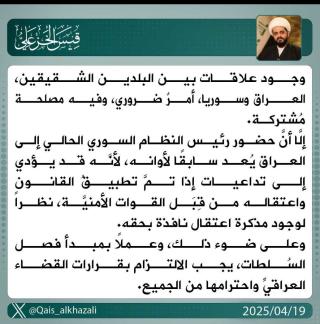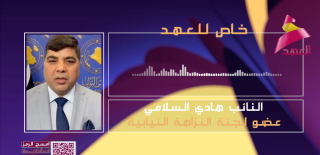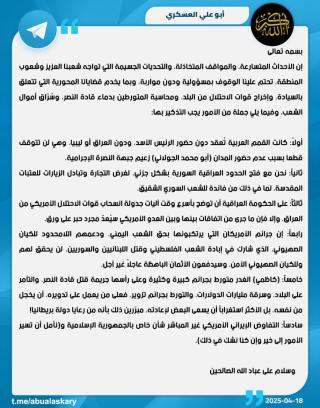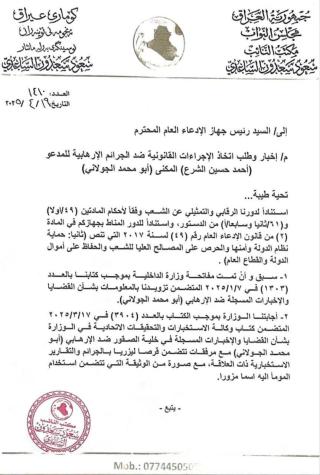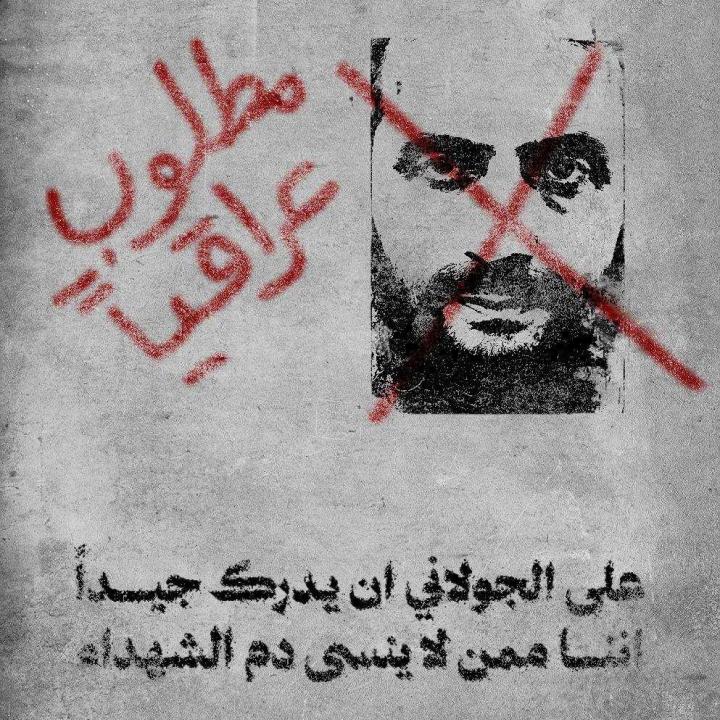
Sudani's Invitation to Ahmed al-Sharaa Triggers Muqawama Backlash

Iraq's self-styled muqawama had an allergic reaction to the idea of former terrorist Sharaa setting foot on Iraqi soil, putting Sudani at odds with some of his terrorist sponsors.
On April 16, 2025, Prime Minister Mohammed Shia al-Sudani confirmed that he would be inviting Syrian president, Ahmed al-Sharaa to the May 17 Arab League summit in Baghdad. Sudani confirmed that he would be inviting Sharaa, who formally went by the name Abu Mohammed al-Jolani during his career as a Takfiri jihadist in Iraq and Syria. (Under a different name, Jolani spent 2005-2011 in the U.S. detention facility, Camp Bucca.)
Sudani’s statement sparked immediate backlash from segments of the self-styled muqawama, particularly within their affiliated media outlets, putting Sudani at odds with some of the terrorist and militia groups that underpin his premiership. Asaib Ahl al-Haq (AAH) took a leading role in denouncing the invitation. Qais Khazali the leader of AAH, issued a short statement on April 19, threatening that the Syrian president might get arrested if he entered Iraq. Khazali declared “…the presence of the current Syrian regime’s president in Iraq is considered too early, because it may lead to consequences if the law is enforced and he’s arrested, given that there is an outstanding arrest warrant against him…in accordance with the principle of separation of powers, the decisions of the Iraqi judiciary must be respected and upheld by all parties..” (Figure 1). The final part of Khazali’s statement appears to be directed at Sudani, making it clear that any attempt by him to prevent the arrest of Ahmed al-Sharaa upon his entry into Iraq will not be tolerated.
The statement reflected a broader push by the muqawama and its affiliates to use legal means to block al-Sharaa’s potential visit to Iraq. Hadi al-Salami, a MP known for his ties the muqawama sent an exclusive voice note to AAH’s al-Ahd TV in which he stated that he and other MPs, along with families of victims of terrorism, would file lawsuits in Iraqi courts against al-Sharaa. Salami stated, “Jolani targeted and killed my elder brother north of Babil in 2005.” (Figure 2). (This was the year Jolani was taken into U.S. custody.)
Kataib Hezbollah (KH) also expressed discontent with the invitation extended to Ahmed al-Sharaa. On April 18, Abu Ali al-Askari, KH’s head of security, issued his first public statement since October of the previous year, in which he conveyed the group’s preference for the upcoming Arab summit to proceed without al-Sharaa’s participation. He stated: "Arab summits used to be held without the presence of President Assad, without Iraq, Libya, and they will not stop if Abu Mohammed al-Jolani, the leader of the criminal al-Nusra Front does not attend [the summit]" (Figure 3).
Although Abu Ali al-Askari’s tone was less confrontational than that of Qais al-Khazali, other KH members nonetheless took concrete steps to obstruct al-Sharaa’s potential entry into Iraq. The head of KH Hoquq parliamentary bloc, Saud Al-Saadi, sent an official letter to the General Attorney on April 19 informing him of the necessity to take legal action against al-Sharaa if he comes to Iraq. (Figure 4).
Kataib Sayyid al-Shuhada (KSS) also joined the chorus of groups criticizing the invitation. MP Falih al-Khazali, affiliated with KSS, voiced his opposition on social media, tweeting: “Iraq is a hub for Arab dialogue, [but] we do not accept that Baghdad be a hub for the terrorist al-Jolani. The blood of martyrs has not dried yet” (Figure 5).
Additionally, on April 20, Yousif al-Kilabi, another MP with ties to the muqawama, managed to secure the support of 58 MPs for his request to withdraw the invitation extended to Sharaa.
There appears to be a cross-muqawama consensus aligning with the Iranian regime’s stance on relations with the current Syrian government. Notably, Supreme Leader Ali Khamenei stated in December 2024 only a few days after the collapse of the Assad regime: “The Syrian youth... must stand with firm determination against those who have orchestrated and brought about this insecurity and God willing, they will prevail over them.” Since then, the Iranian regime’s rhetoric toward the Syrian government has grown increasingly aggressive—an approach that has been clearly adopted by its proxies in Iraq.
AAH seems to have an additional incentive to be the most aggressive group leading this campaign, and that is because Sudani is now considered an important electoral rival—one with whom, along with his ally Falih al-Fayyadh, the chairman of the PMF, AAH has engaged in a head-to-head contest for control over the organization.
